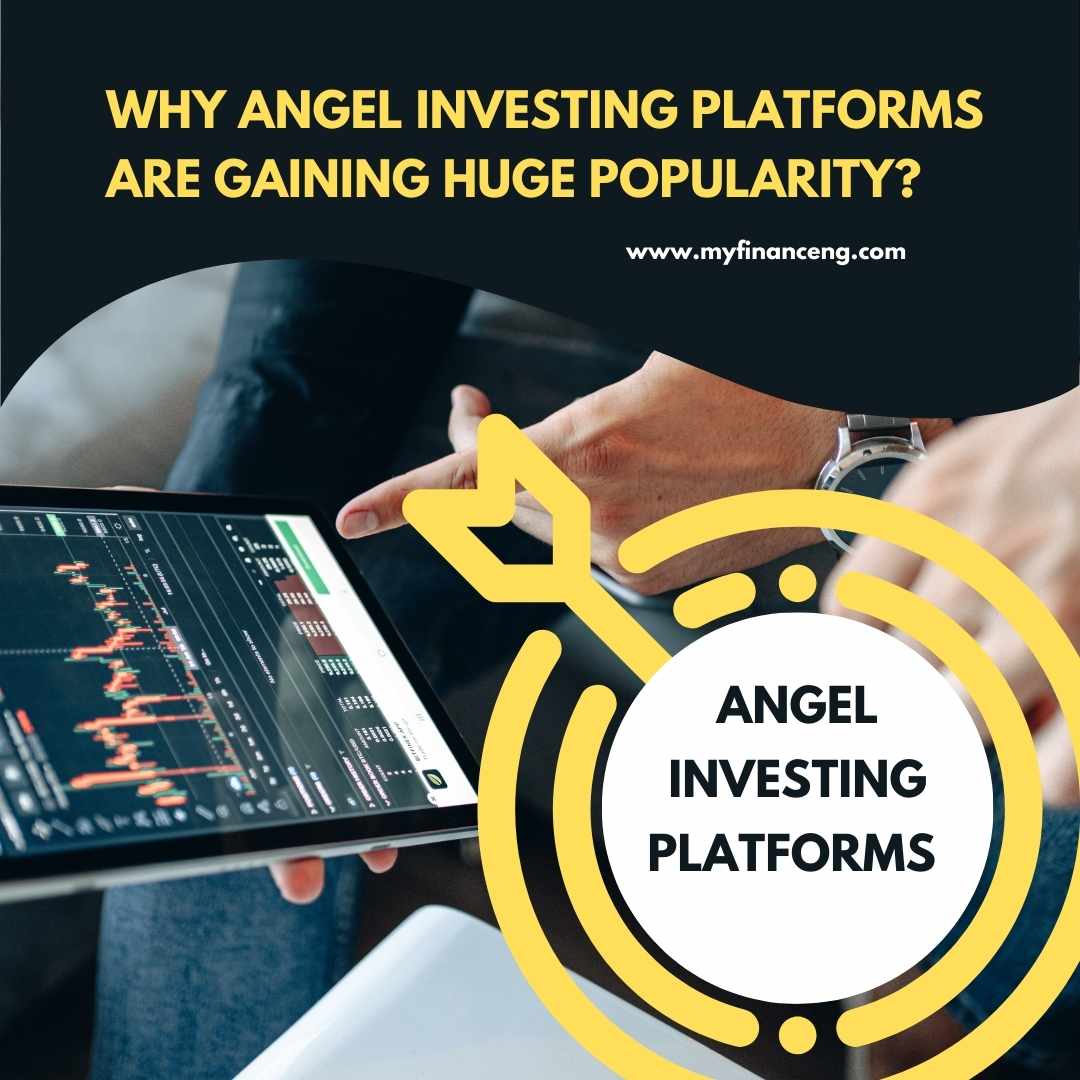Introduction
Want to invest in startups? Compare the top angel investing platforms, learn key strategies, and discover how to spot the next unicorn. Start today!
Angel investing platforms have exploded recently, changing how people invest in early-stage companies. Private equity used to be reserved for high-net-worth people and venture capitalists; now, even the average person can help fund it.
These platforms use technology, regulatory improvements, and a more open approach by investors to democratize startup investing. Angel investing platforms appeal to seasoned investors and newcomers looking for a higher potential return than traditional markets, with a growing ecosystem of vetted opportunities.
In this article, we deeply dive into the key factors driving their growth, from fintech innovations that propel their investments to the power of investing driven by the community, all while exploring the risks associated with them and their future trends.
Why Are Angel Investing Platforms Exploding?
Angel investing platforms rise from the intersection of market demand and technological advancement. Traditional startup investing was insular, needing deep industry relationships and big bucks. Now, digital platforms simplify deal flow, due diligence, and investor onboarding.
Interest is supercharged by the global startup boom, with ever-growing numbers of entrepreneurs seeking to raise at least a part of their funding needs beyond the world of venture funds. In addition, post-pandemic economic conditions have forced investors to turn to the high-growth private markets.
Removing entry barriers while providing curated opportunities, these platforms serve as conduits between visionary founders and eager backers, creating the framework for a new era of accessible wealth creation.
Predisposing Angel Investing to be More Accessible than Before
Technological progress and regulatory changes have broken down historical barriers to angel investing. Until now, only accredited investors (high net-worth ones) could play, but new relaxed rules in many jurisdictions open the doors to retail investors. Fractional investing allows for smaller check sizes and less financial risk. Platforms also reduce legal and administrative hurdles through standardized documentation and automated compliance.
It simply explains the process, helping beginners make educated choices. Mobile-first platforms facilitate effortless access, while data-driven analytics, powered by AI, offer snappy insights. Collectively, these innovations make the once esoteric world of angel investing less daunting and more accessible, attracting a broader audience beyond just an elite few.
What is an Angel Investing Platform, and Why Do They Exist?
Angel investing platforms are online marketplaces that link startups with individual investors. They collect early-stage companies looking for capital and match them up with a network of backers. Investors can review profiles, get financials, and join funding rounds with little resistance. “Platforms like Syndicate have a syndicate model, where lead investors collect funds from multiple backers.
These advanced features include milestones tracking, secondary markets for liquidity, and automated portfolio management; these platforms centralize deal flow and standardize the processes involved — reducing the inefficiencies that have historically characterized traditional angel investing and making it scalable and transparent.
Angel Investing Platforms And Traditional Investment Methods Differ Significantly

Traditional angel investing was built on personal networks and offline negotiations, whereas digital platforms offer structured, data-driven environments. With conventional methods, valuations were opaque, and due diligence was lengthy; with platforms, disclosures were standardized, and verifications were third-party. Also, traditional investing had large minimums, whereas platforms allow micro-investments.
Community engagement is another distinction; contemporary platforms encourage collaboration with forums, webinars, and co-investment opportunities. Compliance with regulatory standards is built into most platform operations, making them less risky from a legal viewpoint for the retail investor than independent deals.
The Increasing Attractiveness to New Investors
Why Rookie Investors Are Turning to Angel Platforms
Angel platforms attract novice investors because they are easy to use and provide educational support. Whereas retail investors often feel outmatched by institutional players in stock markets, angel investing affords direct access to high-growth startups. Most offer beginner-friendly interfaces, pre-vetted deals, and risk-tiered portfolios.
The appeal of supporting disruptive innovations — whether in AI, biotech, or clean energy — also has an allure for younger investors seeking purpose-driven investment opportunities. Moreover, success stories of early backers in unicorns like Uber and Airbnb instill confidence, demonstrating that outsized returns are achievable without insider connections.
How Friendly User Interfaces Are Drawing a Larger Demographic
User-friendly design and smooth navigation help reduce the learning curve for first-time investors. Dashboards with performance analytics, automated document signing, and mobile notifications for new opportunities are above and beyond what the pioneer software is capable of, but what leading platforms can provide.
Elements of gamification, such as milestone badges and leaderboards, promote user engagement. Integrated chat functions and expert-led webinars also cultivate community. Decreasing complexity, these assorted interfaces engage everyone, from millennial tech lovers to older colleagues searching for alternative assets.
Fintech and the Democratisation of Angel Investing
Fintech has been instrumental in scaling angel investing platforms. Blockchain provides transparent ownership records, and smart contracts enable automated equity distribution. AI-powered algorithms evaluate startup viability and predict success likelihood by analyzing historical data.
The cloud-based infrastructure allows for real-time collaboration across global investors. These advancements help reduce administrative overhead, mitigate fraud risk, and increase operational efficiency, so investing in the private market can be as seamless as public trading.
Decisions based on Mobile Apps and Real-Time Insights
Mobile apps help investors track portfolios and source deals on the go. Push notifications notify users of funding milestones, liquidity events, or follow-on rounds. With performance benchmarks and sector trends powered by advanced analytics, data-backed decisions are now possible. Others offer VR pitch rooms, where founders and investors can meet in a virtual space. This immediacy and interactivity speak to modern investors who have little time to waste and expect convenience and transparency.
Why Angel Platforms Are Democratizing Startup Investment

Startup investing was, of course, the province of a few back in the day. Angel platforms upset this status quo by reducing capital requirements and streamlining legal processes. Notable features such as SPV (Special Purpose Vehicle) structures enable pooled investments, distributing risk among several sponsors.
Other platforms are also open to non-accredited investors because they comply with regulation (i.e., Regulation Crowdfunding). By distributing opportunity, such systems allow teachers, engineers, and artists to co-invest with veteran venture capitalists.
Aiming to Break Down Barriers to Entry for Everyday Investors
Retail participants can make tangible investments in angel assets with a minimum of $100. They’re no longer intimidating words explaining term sheets, valuations, and exit strategies, making once nebulous ideas concrete.
Transparent fee structures avoid hidden costs, and escrow services protect funds until funding goals are achieved. Such measures together remove financial and knowledge barriers and welcome broader participation.
Enhanced Transparency and Trust
Angel Investing Platforms: Instilling Investor Confidence
For high-risk, early-stage investing, trust is everything. Well-established platforms conduct strict due diligence, assessing founder credentials, financial forecasts, and market potential. Social proof comes from investor reviews and ratings; validation for claims comes from independent, third-party audits.
Transparent reporting of startup progress — like hitting revenue milestones or launching products — keeps backers in the loop. This ultimately builds lasting confidence and leads to repeat spending.
Due Diligence and Verified Startups
Platforms de-risk the process as only quality opportunities are curated. Vetting procedures evaluate business models, competitive edges, and legal conformity. Some use in-house analysts or collaborate with independent firms for impartial assessments.
Cap tables, burn rates, and founder equity stakes are all mandatory disclosures for verified startups. This vetting process helps to protect investors from bad actors and raises the aggregate quality of deals offered.
Broadened Access to High-Quality Startups
The Rise of More Startups Listing on Angel Platforms
These platforms are favored by startups to raise capital quickly and reach a wider pool of investors. Old-school fundraising is a time-consuming process, while digital solutions facilitate sharing the pitch in real-time.
The investor expertise and networking potential, which is in-built into these kinds of ecosystems, can also benefit the founders. Platforms also tend to offer ancillary services — legal support or mentorship, for instance — creating more incentives for listings.
The Increasing Quality and Quantity of Investment Opportunities

The stars coming in help create better stars on the way out. Niche investors can find vertical-specific platforms (fintech, health tech, etc.), while generalist marketplaces provide heterogeneous solutions. With many deals, the chance to find high-grossing gems increases, making investors more adept.
Better Returns and Portfolio Diversification
Angel Investing Strategies that Yield Better Returns than Conventional Methods
Exponential return potential (which far exceeds the public market average) is available by taking early-stage investments. It’s a risky business, but the right angel portfolio can deliver outsized profits if even one startup hits an exit (and the return can be staggering). According to the historical data, the best angel investments produced IRRs greater than 30%, which surpassed all stocks and bonds.
Angel Investments: Building a Balanced Portfolio
Varying by sector, stage, and geography also helps reduce risk. They do this by integrating into thematic syndicates or through curated bundles. Investing pools can smooth out high-risk, high-reward gambles with consistent, income-generating startups, increasing alpha over time.
A Community-Driven Investment Culture
The Importance of Investor Communities and Peer Learning
A platform is where investors co-create the ecosystem with insights, diligence deals, and share wins. Collective intelligence is augmented through discussion forums, AMAs with founders, and expert-led panels. As a conglomerate, it helps to lessen the bias of a single decision and allows for a better choice.
Angel Investing: Social proof and shared stories of success
Announcements of departures and testimonials validate the model. As startups backed by platforms go IPO or are acquired, those platforms are seen as credible, and new parties join the ecosystem. Viral success stories compound one’s growth and are also a virtuous circle of trust and commitment.
Regulatory Support and Legal Framework
Policies Of The State Which Encourage The Angel Investing Platforms
Around the world, jurisdictions are embracing investor-friendly policies. Tax incentives (e.g., SEIS in the UK) facilitate participation, and recent crowdfunding legislation makes the market more available. Regulators can grant platforms exemptions from some legal requirements in a regulatory sandbox (R&RS).
How Platforms Are Suddenly Becoming Safer for Investors
Regulations regarding mandatory disclosures, anti-fraud measures, and capital protection rules increase security. As with KYC / AML protocols, only those legitimate actors apply. This safeguards sustainable growth.
Success Stories Driving an Increase in Popularity
Angel Investing Success in Real Life
Big winners include early investors in Zoom, Slack, and Coinbase, who made huge returns. Such cases show disciplined angel investing can yield life-altering wealth, bringing more novices into the game.
Case Studies of New Investors Who Love the GIFT
Deep-dive post-mortems of successful exits — including entry valuations, growth trajectories, and exit multiples — better inform investors on things to look out for. These stories demystify the process and instill conviction.
The Influence of Media Coverage and Social Media
How Influencers and News Media Are Influencing Perception
High-profile investors and tech figures now evangelize angel investing via podcasts, blogs, and social media. Positive media captures credibility, and viral success stories get mainstream attention
The Power and Virality of High-Profile Angel Investment Victories
So when, for instance, celebrities or business leaders publicly endorse startups via platforms, it sparks FOMO (fear of missing out) among the retail investor class. That buzz helps accelerate adoption and normalizes angel investing as a source of wealth creation strategy.
Risks and Challenges Investors Should Know About

Common Risks of Angel Investing
These are all inherent risks: illiquidity, startup failure, and dilution. “Startups — the most common instrument of early-stage equity investing — fail most of the time, and you could lose all your capital,” said Otmar Weisser, head of Angel Fund Services, which advises international investors on startup funding. Challenges from market volatility and regulatory changes also exist.
How Platforms Assist and Mitigate These Risks
Decreased exposure via one-stop diversification tools, secondary markets for early exits, and insurance-backed guarantees. Education and vetting also help these new and innovative investment types minimize volatility and reduce fraud.
Angel Investing Platforms : Future Trends
Five Trends that Will Define the Coming Decade
Deals will be matched more by AI8217 ‘s grammars; its equity will be tokenized; and its terroirs8311, 8212, the native health of regions8212, will expand globally. This enables secondary markets to make liquidity easier, and the underlying blockchain technology guarantees tamper-proof ownership records.
Angel Platforms Are Going to Take Over Startup Funding
And as traditional VC grows more competitive, founders will turn to decentralized platforms for that capital. Adoption will also be accelerated by investors’ eagerness for high-growth private sectors.
Best angel investing platforms
Some of the best platforms here are AngelList, SeedInvest, Republic, and WeFunder. They all offer different features, including syndicate investing and blockchain-based equity. The selection between them is a matter of investment philosophy and risk attitude.
Does Elon Musk do angel investing?
Yes, Elon Musk has made angel investments, most famously in early-stage companies such as DeepMind and Zip2. But he is only thinking about his business ventures now.
Conclusion: The Asset Class Buildup of Angel Investing Platforms
High-growth startups, highlighted by technology, regulatory changes, and investor fervor, have democratized access to such angel investing platforms. Despite the risks involved, the potential rewards and a community-governed approach make them a compelling alternative asset class.
The Post: Now Would This Be a Good Time to Consider Angel Investing?
As the sector has matured and more protections have been put in place, now is never a better time for investors to expand into early-stage investments. Those who learn about and use platform tools will benefit the most.

